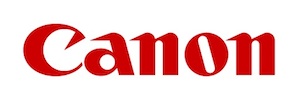Cary Sherburne: Hi. I’m Cary Sherburne, Senior Editor at WhatTheyThink.com and I'm here with Jeff Mercier who is Director of Operations at B-O-P-I, BOPI?
Jeff Mercier: Correct.
Cary Sherburne: In Bloomington, Illinois. And maybe you could just start by giving us a little brief overview of the company, when it was founded, and how many employees you have, that kind of thing.
Jeff Mercier: Sure, sure. BOPI is about an 80-year-old company, initially launched as Bloomington Offset Process. About a decade ago we changed the name to BOPI to more match the services that we provide, that they were much beyond the scope of an offset printing company.
Cary Sherburne: And how many employees?
Jeff Mercier: We have about 65 employees; revenue of about $12 million.
Cary Sherburne: And what drove you to, you know, make this business transformation and add marketing services to your business?
Jeff Mercier: When as we started with offset and moved into digital, we saw a need in which a lot of those—one, those two needed to be added together. And then digital and its capability as a variable quickly led into other tie-ins, such as Pearls. I think that was one of the first ones, beyond just general mailing, and then it quickly transcended into other segments.
Cary Sherburne: So you use interlinkONE?
Jeff Mercier: Correct.
Cary Sherburne: Yeah. So that’s your marketing portal kind of thing.
Jeff Mercier: Yes.
Cary Sherburne: And you also have EFI Monarch as an MIS system that you just recently implemented. So talk a little bit about MIS and why you think printers should have that, because unfortunately, there still are a lot of companies out there that either don’t have it or haven’t fully implemented it. And you’ve just gone full boat with the whole thing end to end. So talk a little bit about that.
Jeff Mercier: We do put a lot of value in MIS and I think every business should. You need to know your costs. You need to be able to predict what the past looks like. You need to look at the past so you can predict the future and MIS has helped do that. You need to be able to look at numbers. You need to—based on those numbers, you need to find ways to improve the essence of business and how you stay alive in any industry.
Cary Sherburne: And you really don’t want to wait till the end of the month to see if you made any money.
Jeff Mercier: Precisely, precisely. I want to be able to—two, three weeks if things aren’t ramping up I want to be able to look at adjusting things.
Cary Sherburne: Yeah. And then in terms of—I’m kind of interested in the direct machine interface, the shop floor data collection. Is that really helpful for you as well?
Jeff Mercier: Yes. Well, we actually go live with that portion next week.
Cary Sherburne: Okay.
Jeff Mercier: But yes, we’re anticipating a lot of—our operators are actually anticipating having the direct machine interface as well.
Cary Sherburne: So it’ll help you evaluate the operators, keep track of what’s going on with the presses, and all those kinds of things?
Jeff Mercier: Correct, correct. See what the problem areas are, where we need to focus, and see what we can really do to make sure that when we’re ready for production everything’s there, ready to go, and we’re running.
Cary Sherburne: So a lot of companies that I’ve talked to in the past have a kind of friendly competition going on between the operators of the various equipment that has direct machine interface. So are you going to try that; put up the little, you know, signs and see if they can beat the other guy’s performance?
Jeff Mercier: You know, I think we will, I think we will. We’ve got a very competitive set of employees that they always push themselves. So, you know, I think it would be in good nature and I think it would serve us well, serve them well.
Cary Sherburne: That’s great. Well, it’ll be really exciting to talk to you maybe a year from now and see how everything went and, you know, what new things you’re learning and doing, and what it’s done for your business.
Jeff Mercier: Sounds great. I’d love to.
Cary Sherburne: Okay, great. Thank you.
Jeff Mercier: Thank you.

 Official camera partner of WhatTheyThink and the drupa daily.
Official camera partner of WhatTheyThink and the drupa daily. 












